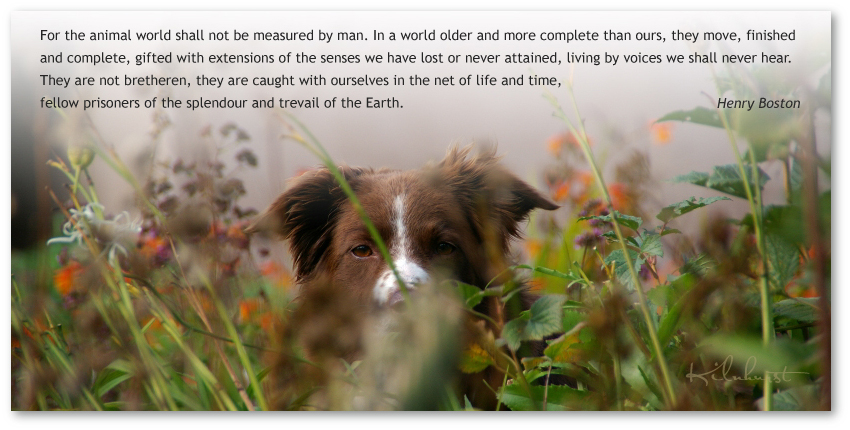Credo
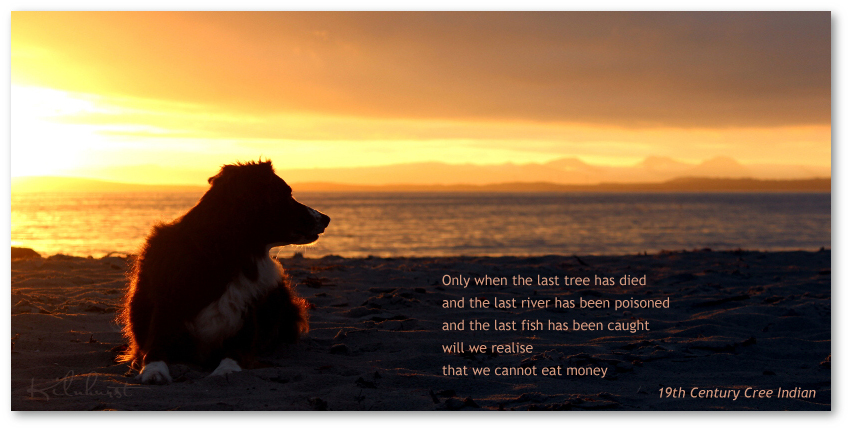
For the past three decades we have raised our dogs as naturally as possible, avoiding as many toxins in their environment and artificial
additives in their food, as we can. This is the legacy of our adored dog Kressler who in just six short weeks was stolen from us in his
prime aged seven years, by a particularly aggressive form of bowel cancer.
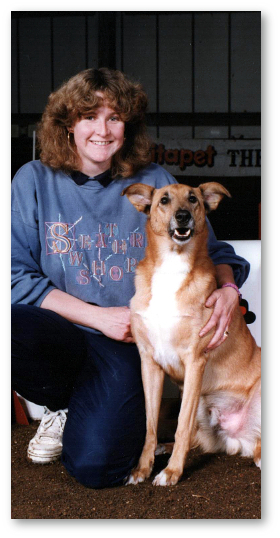 His death was dismissed kindly by
the Vet as ‘just one of those unfortunate things’. However we could not share this well-meaning but seemingly blind acceptance. In an attempt to deal
with the grief and to come to terms with our loss, we searched for information as to why an otherwise fit, healthy, active and
comparatively young dog should have become so catastrophically ill in the first place.
His death was dismissed kindly by
the Vet as ‘just one of those unfortunate things’. However we could not share this well-meaning but seemingly blind acceptance. In an attempt to deal
with the grief and to come to terms with our loss, we searched for information as to why an otherwise fit, healthy, active and
comparatively young dog should have become so catastrophically ill in the first place.
It took no time at all to unearth some distressing facts. Kressie's death was anything but ‘unfortunate’ or indeed unavoidable; our beloved
friend had died because, via his food, we had unwittingly been systematically poisoning him for years. His cancer, along with many other
common attrition-attributed diseases we are told are part of a dogs’ eventual ‘lot’ - such as skin irritation, allergies, heart disease,
arthritis, poor coat, halitosis, dental caries, packed anal glands, behavioural problems etc., were anything but inevitable. Worse than
that, they were all largely preventable.
We promised ourselves unconditionally that no more of our dogs would ever die because of what we had fed or injected them with, and that
that the dog we had lost had not died in vain.
We appreciate that complete avoidance of harmful chemicals is unrealistic in the modern world, so instead we seek to eliminate as much as
we can. Whenever there is a choice in what we do or what we provide for the dogs, we select the most beneficial one.
The following article, written by holistic Vet John Saxton, neatly encapsulates our philosophy.

Doing What Comes Naturally
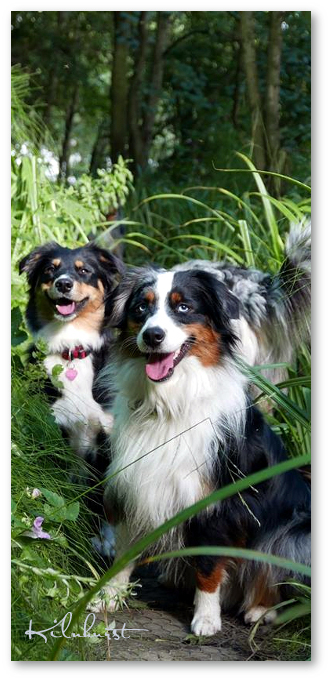
If one considers all the advice being given by the medical professions generally, both human and veterinary, it can appear as if good
health is solely a reward for good behaviour, provided that certain rules are followed. In fact this is not true.
In nature, good health is the normal state of affairs, and the whole of the animal system and lifestyle is organised to maintaining that
state. It is man who so often deprives animals (and himself) of this by inflicting unnecessary stresses on their systems in the name of
that ‘good health’, which in fact already exists. This is not to say that appropriate help should not be given where necessary, but all
that we do must be in accord with nature if it is to be truly effective.
There will be occasions when there is a clash between what is entirely natural and what is necessary to allow animals to live successfully
in our world. But even when dealing with these situations, the requirements of nature must never be ignored. As Francis Bacon said:
‘Nature cannot be controlled except by obeying her’
In every situation the first thing that must be asked is ‘How does nature approach this problem?’ There is no point in constructing the
‘ideal’ diet from theoretical considerations when the answer has already been provided and tested over thousands of years. And if the human
concept of the ‘ideal’ diet differs materially from nature’s diet (as it often does), then there will be trouble ahead. And this principle
applies to all aspects of animals health.
The first procedure to consider is weaning. Early weaning and early artificial feeding can store up both physical and psychological
problems for the future. Nature has evolved the ideal time scale for this process, and the development of the young body is geared to
this.
Vaccinations
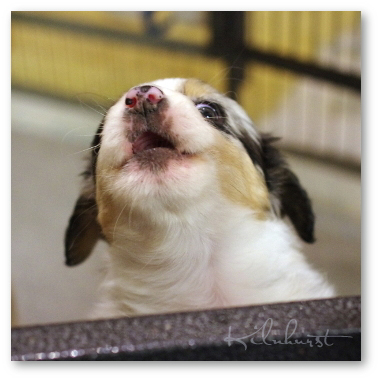
Next there is the question of vaccination. This is not the place to re-run the whole of the vaccinations story. For the present purpose
it is sufficient to consider the question of maternal antibodies, and the rate at which their level wanes naturally.
Whether maternal antibodies are present or absent in a particular animal is not important; what is important is that nature intended them
to be there. It is generally considered that these antibodies are there to protect the young animal from the ‘killer’ diseases, but this is
not entirely true. Their major function is to protect the young, developing system from having to deal with the challenge of diseases
before it is able.
A system so exposed can suffer permanent functional harm. A few moments thought will show that most of the current primary vaccination
regimes violate this principle. It must also be remembered that in nature, where there is a background field challenge present, the young
animal will initially meet this at a time when maternal antibody levels are high.
It will continue to meet it as those levels wane, and at some point a portion of the challenge will get through the maternal defences and
stimulate an active immune response. But it will initially be only a small challenge, which will slowly increase as the maternal antibodies
decrease. And before long there will be an active antibody response generated by the young body, which will augment the declining maternal
antibodies. The one increases as the other decreases but at no time is the young animal unprotected and at no time does it ever receive the
massive ‘whammy’ that is artificially imposed by vaccination.
Diet
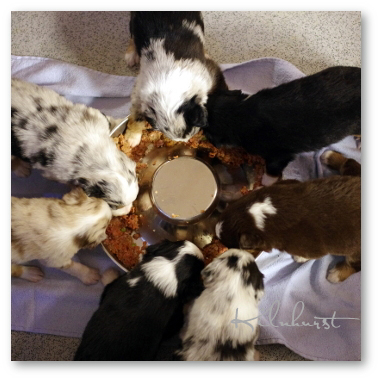
Diet has received much attention from the ‘experts’. Two major assumptions are made by them prior to the formulation of their diets that
are contrary to nature. The first is that maximum growth rate is intrinsically a good thing and the second is that young carnivores do not
need to take Vitamin C in their diet.
The first leads to the formulation of high protein diets that push growth rates to their maximum genetic potential. Of course growing
animals need adequate supplies of protein, but too much of a good thing is harmful.
It is also known that most animals (apart from man, guinea pigs and some species of monkeys) are capable of synthesising Vitamin C. From
this it is assumed that this vitamin is not necessary in their diets. But young animals have high requirements for Vitamin C as it is
essential for the formation of strong cartilage, tendons and ligaments and these cannot necessarily be met from within the body. Low
Vitamin C availability leads to weaker skeletal systems whilst high protein intake leads to heavier bodies that put greater strain on those
developing systems. The seeds of arthritis etc later in life can be planted in the early growing stages of life.
The diet of wild carnivores consists in large part of herbivores, whose stomach contents are rich in Vitamin C, and the young do not get an
exclusive diet of prime steak. Nature rears her young on a moderate protein, high Vitamin C diet: conventional diets in their ‘wisdom’
provide high protein, low Vitamin C nutrition. When did you last see one-year old wolves, lions and tigers crippled with OCD?
Neutering

Issues such as neutering move into areas where pure nature and man’s social requirements have to be balanced for the good of all. Naturally, the purpose of a female is to breed regularly, and hence if this is not required in domestication the removal of the facility may be the best option for the animal, as problems can arise with entire, non-breeding, females. Chemical contraception is the worst of all worlds. Males should only be neutered on clinical rather than social grounds.
In Conclusion
Two themes stand out in the conventional approach to animal management. One is the arrogance that ‘man knows best’. The other is that
everything man does is rushed while nature moves at a steadier pace and gets better results. Remember:
True animal lovers do what comes naturally.
by John G. G. Saxton BVetMed VetFFHom CertIAVH MRCVS, for Canine Health Concern.
President, Veterinary Fellow and Examiner of the Faculty of Homeopathy, London. Past President of the British Association of Homeopathic
Veterinary Surgeons. Recognized Teacher and Examiner for the International Association for Veterinary Practice.
